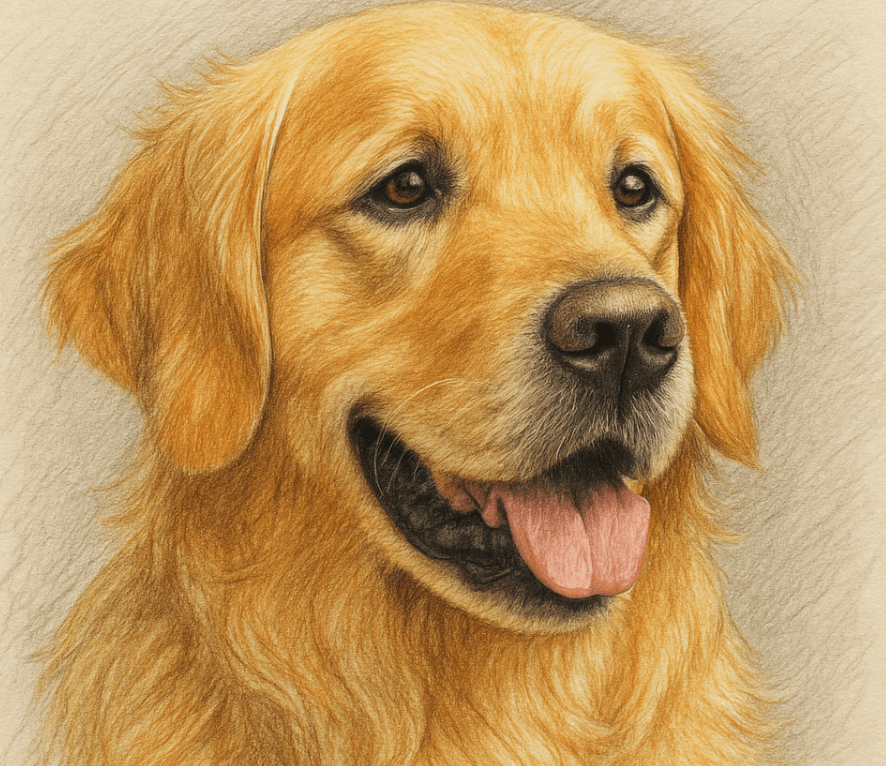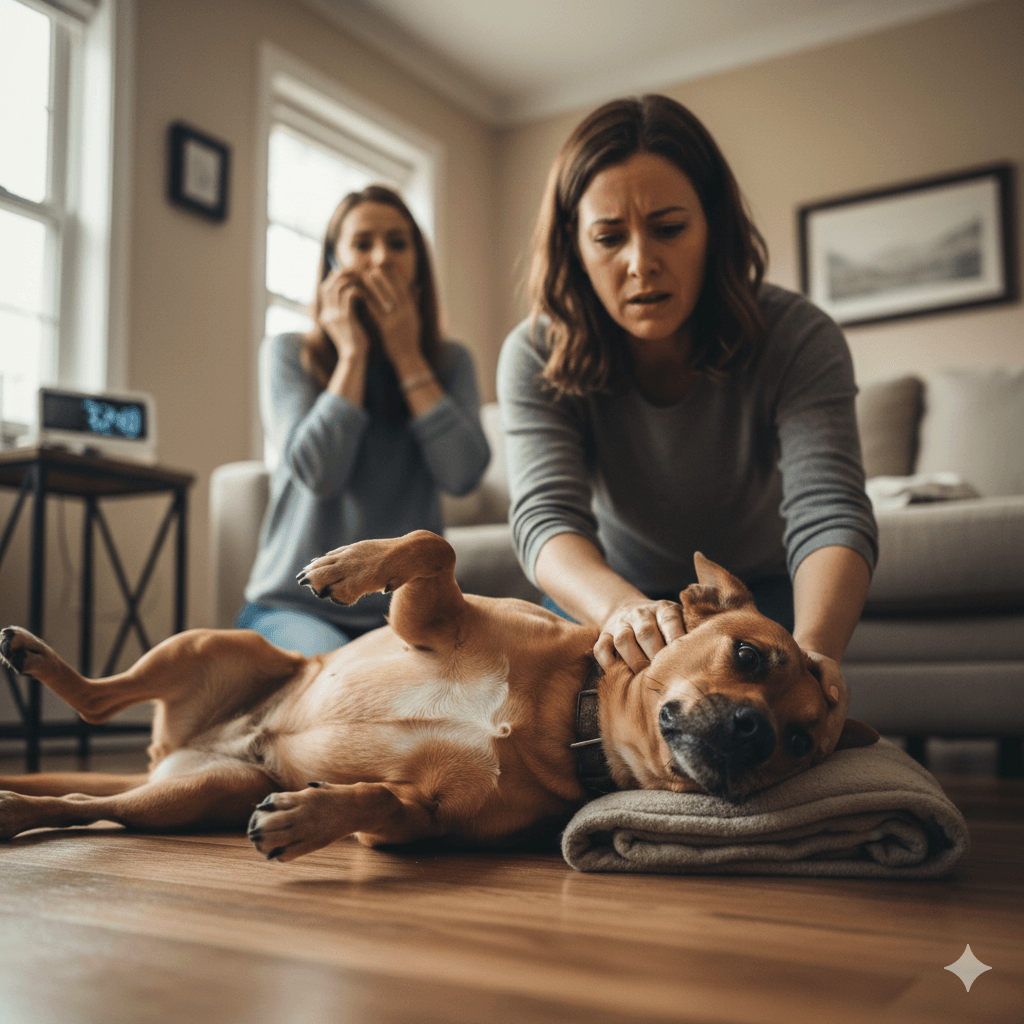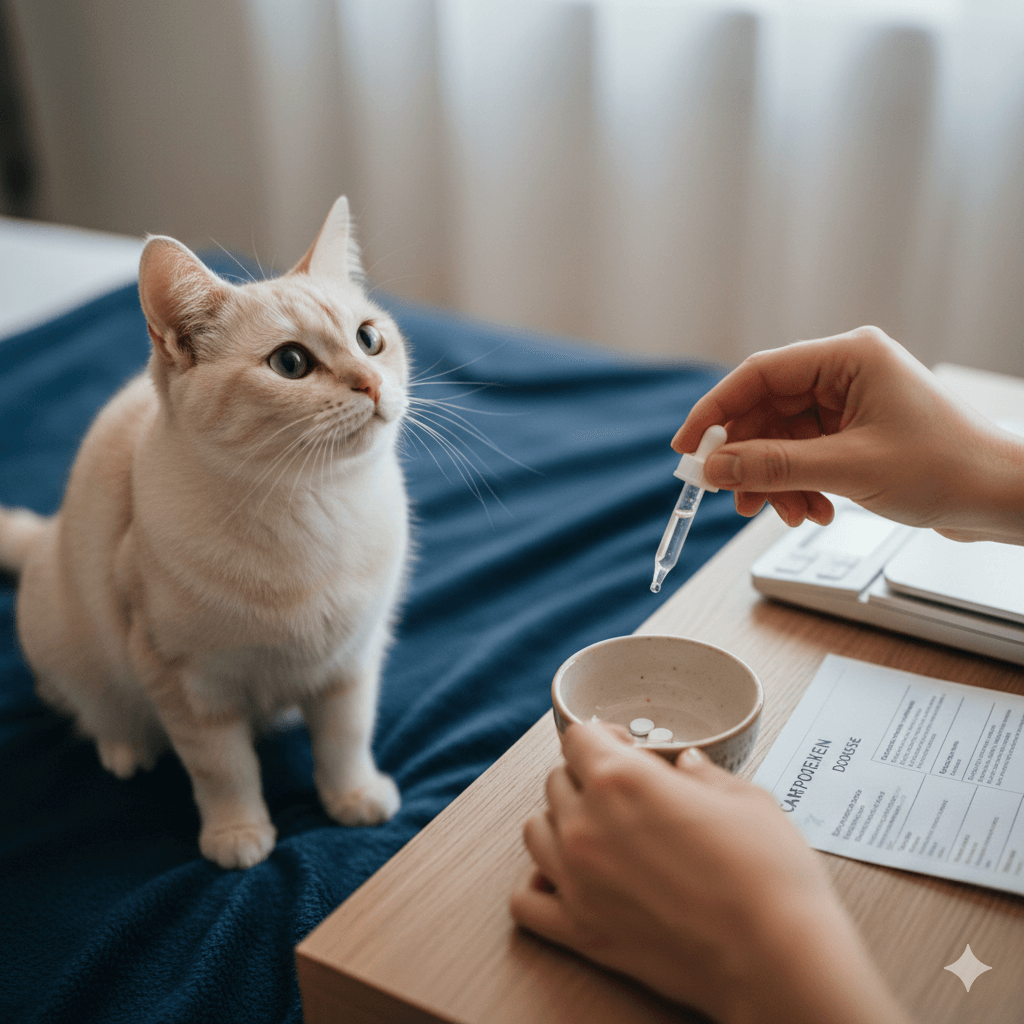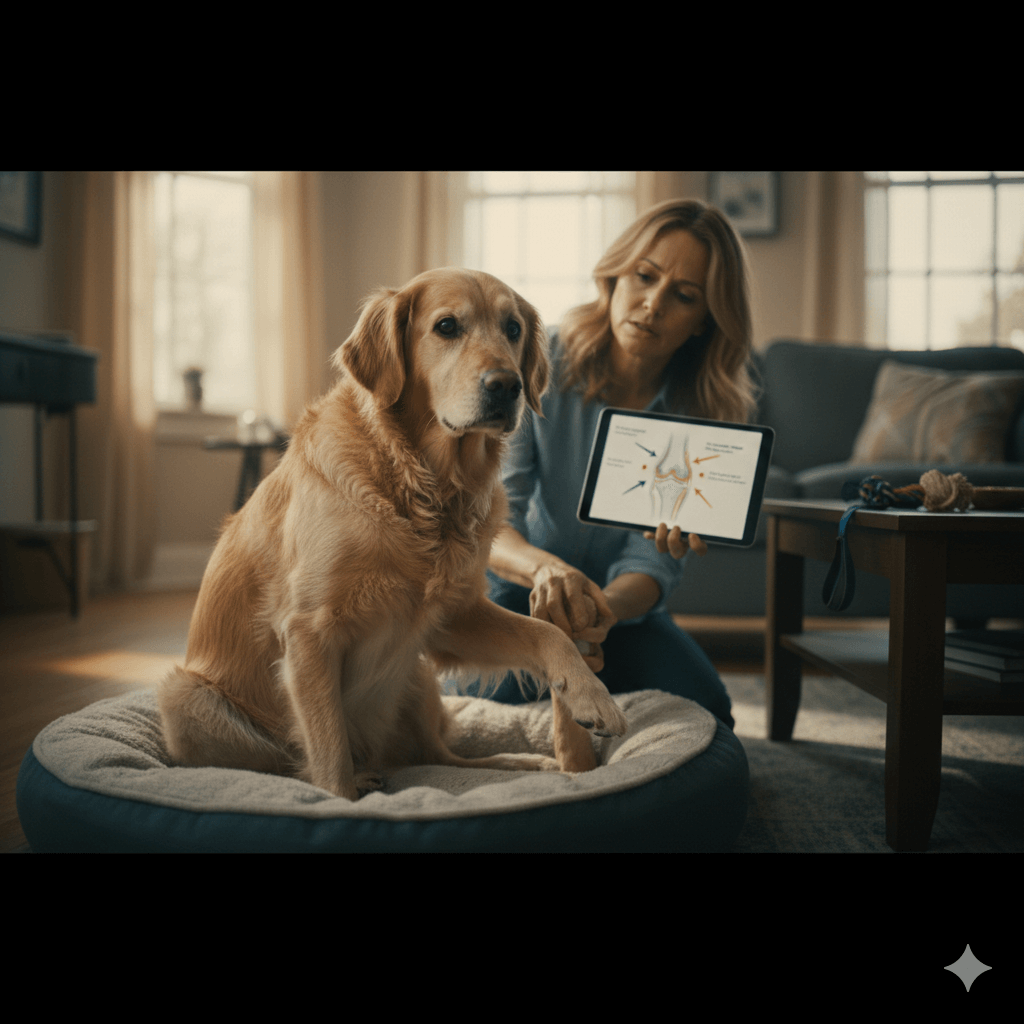Are Golden Retrievers Hypoallergenic? What You Need to Know
Golden Retrievers are one of the most beloved dog breeds, known for their friendly personalities, intelligence, and loyalty. However, many potential owners wonder, “Are Golden Retrievers hypoallergenic?” This question often arises from concerns about allergies, as some people experience reactions to pet dander, saliva, or fur. While Golden Retrievers are wonderful companions, they are not considered hypoallergenic. In this blog post, we’ll explore why this is the case, discuss shedding patterns, and provide tips for managing allergies if you’re set on bringing a Golden Retriever into your home. Let’s dive in and separate fact from fiction when it comes to Golden Retrievers and allergens.
Why Golden Retrievers Are Not Hypoallergenic
The term “hypoallergenic” refers to dogs that produce fewer allergens and are less likely to trigger allergic reactions in humans. Unfortunately, Golden Retrievers do not fall into this category. Here’s why:
Heavy Shedding:
Golden Retrievers have a double coat consisting of a dense undercoat and longer guard hairs, which they shed year-round, especially during seasonal changes.Dander Production:
Like all dogs, Golden Retrievers produce dander (tiny flakes of skin), which is a common allergen for sensitive individuals.Saliva Allergens:
Many people with pet allergies react to proteins found in a dog’s saliva, and Golden Retrievers are no exception.Frequent Grooming Needs:
Their thick coats require regular brushing and bathing, which can temporarily increase the amount of loose hair and dander in your home.No Hypoallergenic Breeds Guarantee:
Even breeds marketed as hypoallergenic still produce allergens; the difference lies in the quantity and type of allergens they release.
While Golden Retrievers may not be hypoallergenic, there are ways to minimize allergens and enjoy life with these loving dogs.
Managing Allergies with a Golden Retriever
If you’re allergic but still want to share your life with a Golden Retriever, don’t worry—there are strategies to reduce allergens and make cohabitation more comfortable.
Frequent Grooming:
Regular brushing and professional grooming help remove loose hair and dander, keeping allergens at bay.Bathing Your Dog:
Bathing your Golden Retriever every few weeks can reduce the amount of dander and saliva residue on their coat.HEPA Air Purifiers:
Using high-efficiency particulate air (HEPA) purifiers in your home traps airborne allergens, improving air quality.Designated Pet Zones:
Limit your dog’s access to certain areas of the house, such as bedrooms, to create allergen-free spaces.Washing Hands After Contact:
Washing your hands after petting or playing with your dog minimizes the spread of allergens.
With these measures, you can significantly reduce allergy symptoms and enjoy the companionship of a Golden Retriever.
Check this guide 👉How Fast Can a Golden Retriever Run? Best 7 Expert Tips!
Check this guide 👉Great Pyrenees vs Golden Retriever: Best 7 Expert Tips!
Check this guide 👉Shiba Inu Golden Retriever Mix: Best 7 Expert Tips!

Tips for Reducing Allergens | Challenges of Owning a Golden Retriever |
|---|---|
Brush your dog daily to control shedding | Heavy shedding year-round |
Use HEPA filters in your home | Frequent grooming required |
Bathe your dog regularly | Potential for increased dander production |
Clean furniture and carpets frequently | Not suitable for severe allergy sufferers |
Create pet-free zones in your home | High-maintenance coat care |
Alternatives to Golden Retrievers for Allergy Sufferers
If you’re looking for a dog that’s easier on allergies, consider these hypoallergenic or low-shedding breeds as alternatives to Golden Retrievers.
Poodles:
Poodles are highly intelligent, hypoallergenic dogs with curly, non-shedding coats that produce fewer allergens.Bichon Frise:
Known for their playful nature, Bichon Frises have soft, hypoallergenic coats that require regular grooming.Portuguese Water Dogs:
These energetic, water-loving dogs have curly coats that shed minimally, making them a good choice for allergy sufferers.Schnauzers:
Available in miniature, standard, and giant sizes, Schnauzers have wiry coats that trap dander and reduce shedding.Basenjis:
Basenjis groom themselves like cats, producing less dander and making them a low-allergen option.
These breeds offer the joy of dog ownership without the heavy burden of allergens.
Understanding the Golden Retriever’s Coat
A Golden Retriever’s coat plays a significant role in their appeal—and their allergenic properties. Understanding its characteristics can help you manage shedding and allergens effectively.
Double Coat Structure:
The thick undercoat provides insulation, while the outer coat repels water and dirt, making it functional but prone to shedding.Seasonal Shedding Spikes:
During spring and fall, Golden Retrievers “blow” their coats, shedding large amounts of fur in a short period.Color Variations:
Whether light gold or deep cream, their coat color doesn’t affect how much they shed or produce allergens.Water-Resistant Properties:
Their outer coat is naturally water-resistant, requiring regular maintenance to prevent matting and tangling.Grooming Frequency:
To keep shedding under control, Golden Retrievers need brushing several times a week and monthly baths.
By understanding their coat needs, you can better prepare for life with a Golden Retriever.
Common Misconceptions About Hypoallergenic Dogs
There are several myths surrounding hypoallergenic dogs that can lead to confusion among potential owners. Here’s what you need to know.
Myth: Hypoallergenic Dogs Don’t Shed:
While they shed less, hypoallergenic breeds still produce dander and saliva, which can trigger allergies.Myth: Allergies Depend on Coat Length:
Short-haired dogs aren’t necessarily better for allergies; it’s the type of coat and dander production that matter.Myth: Mixed Breeds Can’t Be Hypoallergenic:
Some mixed breeds, like Labradoodles, inherit hypoallergenic traits from one parent breed.Myth: Hypoallergenic Dogs Require Less Maintenance:
Many hypoallergenic breeds need frequent grooming to maintain their coats and reduce allergens.Myth: Allergy-Free Dogs Exist:
No dog is entirely free of allergens; hypoallergenic simply means reduced allergen production.
Understanding these facts helps set realistic expectations for pet ownership.
Tips for Choosing a Low-Shedding Dog Breed
If shedding and allergens are major concerns, selecting a low-shedding breed can make a big difference. Here are some factors to consider.
Research Coat Types:
Look for breeds with curly, wiry, or single-layer coats, as these tend to shed less than double-coated breeds.Visit Breeders or Shelters:
Spend time around different breeds to gauge your reaction to their dander and fur before committing.Consider Size Matters:
Smaller dogs typically produce fewer allergens overall compared to larger breeds.Assess Grooming Needs:
Low-shedding breeds often require regular grooming to prevent mats and maintain coat health.Consult an Allergist:
An allergist can test your sensitivity levels and recommend breeds that align with your tolerance.
Choosing wisely ensures a happier, healthier relationship with your future pet.
How to Prepare Your Home for a Golden Retriever
Bringing a Golden Retriever into your home requires thoughtful preparation to accommodate their shedding and grooming needs.
Invest in Quality Cleaning Tools:
Vacuum cleaners designed for pet hair and lint rollers are essential for managing shedding.Choose Easy-to-Clean Furniture:
Opt for leather, microfiber, or washable slipcovers to minimize fur accumulation on upholstery.Create a Grooming Station:
Set up a designated area for brushing and bathing to contain loose hair and messes.Stock Up on Supplies:
Keep a supply of brushes, de-shedding tools, and grooming products handy for routine care.Plan for Seasonal Changes:
Be prepared for increased shedding during spring and fall by stepping up your cleaning routine.
Proper preparation ensures a smooth transition and keeps your home fur-free and welcoming.
Frequently Asked Questions About Golden Retrievers and Allergies
Do Golden Retrievers shed a lot?
Yes, Golden Retrievers shed heavily, particularly during seasonal changes, due to their double coats.
Can I live with a Golden Retriever if I’m allergic?
It depends on the severity of your allergies. Some people manage with proper cleaning and grooming routines, while others may struggle.
Are there hypoallergenic dogs?
Certain breeds, like Poodles and Bichon Frises, are considered hypoallergenic because they produce fewer allergens, though no dog is completely allergen-free.
How often should I bathe my Golden Retriever?
Bathing every 4-6 weeks is ideal to reduce dander and maintain coat health without over-drying their skin.
Will shaving my Golden Retriever reduce shedding?
Shaving is not recommended, as it removes their protective undercoat and can disrupt temperature regulation.
Finding Balance Between Love and Allergies
While Golden Retrievers are not hypoallergenic, their loving and loyal nature makes them an irresistible choice for many families. For those with mild allergies, careful management through grooming, cleaning, and lifestyle adjustments can make coexistence possible. However, individuals with severe sensitivities may need to explore hypoallergenic alternatives. Ultimately, the decision comes down to your willingness to adapt and prioritize your pet’s well-being. With patience and preparation, you can create a harmonious home where both you and your furry friend thrive.
Dog Seizure Symptoms: Best 7 Expert Tips! – Learn to spot signs, respond effectively, and manage seizures in dogs for a healthier, happier life.
Carprofen Dosage for Cats: Best 7 Expert Tips! – Learn safe dosing, risks, and alternatives to manage pain and inflammation in cats effectively.
Africanis Dog Breed: Best 7 Expert Tips! – Explore the resilience, loyalty, and adaptability of this ancient African breed, perfect for diverse lifestyles.
Cruciate Ligament Injury Symptoms in Dogs: Best 7 Tips! – Discover key signs like limping, swelling, and joint instability to ensure prompt treatment.




